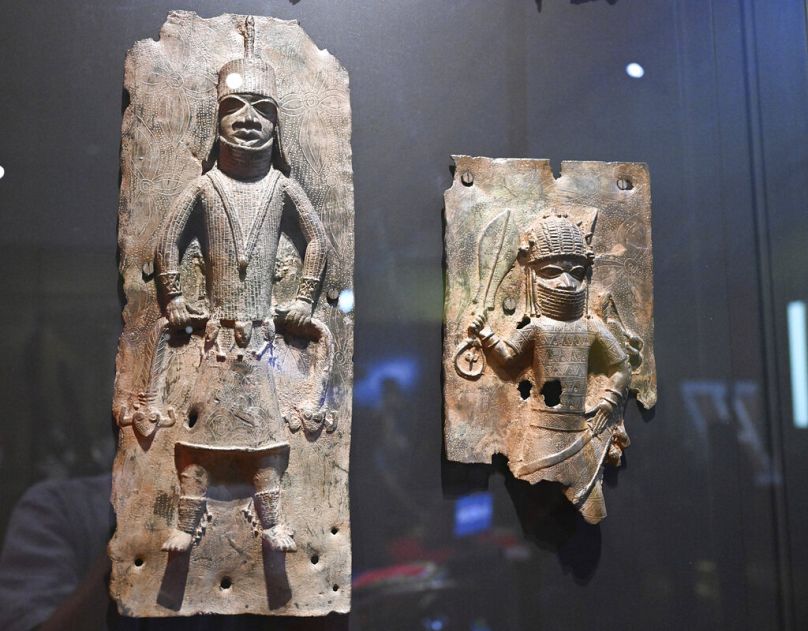The €2.1 million fund will finance research over three years investigating whether African artefacts in French and German national museums were justly obtained.
As the movement to “decolonise” museums gains ground in Europe, France and Germany have launched a €2.1 million research fund to investigate the provenance of African cultural artefacts in their national institutions.
 ADVERTISEMENT
ADVERTISEMENT
 ADVERTISEMENT
ADVERTISEMENT
The new fund aims to finance research projects focused on cultural objects from anywhere in sub-Saharan Africa. Former French and German colonies like Cameroon and Togo (each of which were colonised by both France and Germany) will be given priority.
Each country will contribute €360,000 per year to the three-year fund, which will operate based on a demand for projects.
The initiative was announced by France and Germany's culture ministries earlier this month. Submission forms for eligible projects are being made available online this week until 30 April.
The Centre Marc Bloch, a Franco-German research centre for social sciences and humanities in Berlin, will manage the disbursement of funds.
“The first year will be experimental,” said Dr Julie Sissia, scientific project head of the fund and researcher at the Centre Marc Bloch. “We gave as few budgetary and thematic constraints as possible for eligibility criteria to keep it as open as possible.”
To qualify for funding, projects need to have a German-French institutional team, they must have a close relationship with a partner in Africa and their scope must include both museum and academic research, Sissia said.
“We want to see how, from a German-French perspective, there can be new teams, new methods emerging from that format.” Sissia told Euronews Culture.
Sissia says this is the first fund devoted to international cooperation in provenance research, a huge step towards a Europe-wide collaboration on the hot-button issue.
“This initiative shows a good, functioning German-French collaboration in the cultural field today, and there’s also this aspect of a pilot project because both the German and French culture ministries have been thinking of opening this collaboration on a European level after the three-year experimental phase is done,” Sissia said.
A growing commitment to restitution across Europe
Museums across Europe and North America are facing increasing calls to revisit their approaches to indigenous and colonial-era cultural artefacts in their possession.
Most recently, the American Museum of Natural History in the US announced the closing of two major wings exhibiting Native American objects, after new federal regulations required museums to get consent from tribes before displaying or researching their cultural items.
Both France and Germany have been working on finding a framework for the restitution of African artefacts, an issue that’s become a new priority for national policymakers.
In France, the push came after a 2017 speech by President Emmanuel Macron, in which he promised to rebuild strained relationships with France’s former colonies in sub-Saharan Africa.
He said returning or loaning African artefacts held in French cultural institutions would be a “top priority” for his administration.
“African heritage cannot be a prisoner of European museums,” Macron said in a Tweet after his trip to Burkina Faso, Ghana and Ivory Coast.
France returned 26 artefacts to Benin in 2021, but restitution efforts have stalled in recent years as a law to establish a framework for the return of African artefacts hit a roadblock in parliament late last year.
Germany has also made headway on the issue, signing a deal to return hundreds of artefacts known as the Benin bronzes, which were first looted by a British colonial expedition.
So far, Berlin has returned around 20 bronzes to Nigeria, which were previously exhibited in German national museums. Its national collection has one of the greatest number of African artefacts in the world.
Sissia said the new Franco-German fund will also allow for new research on the circulation of cultural objects from Africa, shedding light on how objects crossed borders through international art dealers and cultural institutions.











